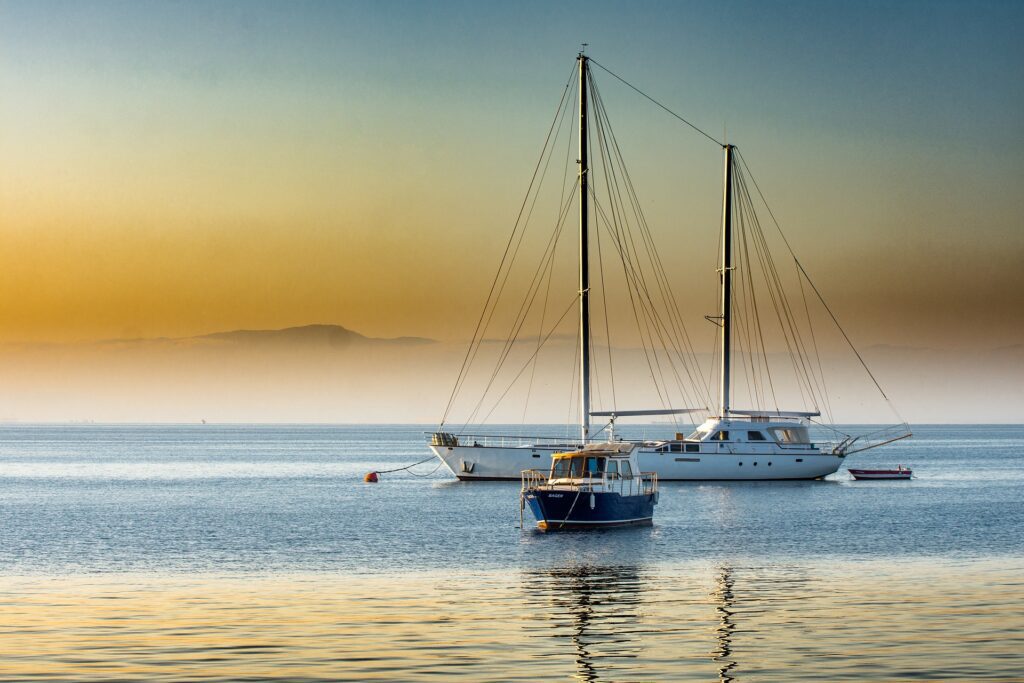

Turkey is a country located in Eurasia, bordering the Black Sea to the north, Georgia and Armenia to the northeast, Iran to the southeast, Iraq and Syria to the south, and the Aegean and Mediterranean seas to the west. Turkey is a republic with a presidential system of government and a diverse population of over 84 million people. The country has a rich cultural heritage, reflecting its historical role as a crossroads between Europe and Asia. Turkey is also a member of NATO and has aspirations of joining the European Union.
Visa requirements in Turkey
Citizens of some countries are required to obtain a visa to enter Turkey, while others are eligible for visa-free entry. The requirements can change, so it’s always best to check with the Turkish embassy or consulate in your home country before traveling to Turkey.
In general, citizens of the European Union, the United States, Canada, Australia, and New Zealand are required to obtain a tourist visa before entering Turkey. Visas can be obtained in advance from Turkish embassies or consulates, or upon arrival at a Turkish airport.
Geography of Turkey
Turkey is a country located in southeastern Europe and southwestern Asia, with a total area of 783,562 square kilometers. It is bordered by the Black Sea to the north, Georgia and Armenia to the northeast, Iran to the southeast, Iraq and Syria to the south, and the Aegean and Mediterranean seas to the west. The country is divided into seven geographic regions: the Black Sea coast, the Marmara region, the Aegean region, the Mediterranean region, Central Anatolia, Eastern Anatolia, and Southeastern Anatolia. These regions vary in terms of climate, topography, and natural resources.
The country is also home to several major river systems, including the Euphrates and the Tigris, which flow through Southeastern Anatolia and into Iraq, and the Bosporus Strait, which separates Europe and Asia and is an important shipping route.
Travel and Safety Requirements
Turkey has specific requirements for travel and safety. Visitors are encouraged to take the following precautions:
- COVID-19: Turkey requires proof of a negative COVID-19 test taken within 72 hours before arrival.
- Passports and visa: Visitors must have a valid passport and, in some cases, a visa to enter the country.
- Travel insurance: It is recommended that visitors have travel insurance to cover medical expenses, lost or stolen property, and other emergencies.
- Local laws and customs: Visitors should familiarize themselves with local laws and customs and respect them while in Turkey.
- Natural disasters: Turkey is prone to earthquakes, and visitors should be prepared for potential natural disasters.
It’s always a good idea to stay informed about the current situation in Turkey and to follow the advice of local authorities.
Money and Banks in Turkey
The currency used in Turkey is the Turkish Lira (TRY). Visitors can exchange their currency at banks, currency exchange offices, and hotels. Some places may charge commission fees. There are many ATMs available in Turkey where visitors can withdraw local currency using their debit or credit cards. Major credit cards are widely accepted in Turkey, including Visa, Mastercard, and American Express.
It is important to inform your bank about your travel plans to avoid any disruptions to your card usage. Additionally, it is advisable to carry a small amount of local currency for emergencies or for purchases in places where credit cards are not accepted.


Food and Drink in Turkey
Turkish cuisine is diverse and flavorful, featuring a mix of Middle Eastern, Mediterranean, and Central Asian influences. Popular dishes include kebabs, meze platters, baklava, and Turkish delight. Alcohol is widely available in Turkey and the country is famous for its production of raki, a traditional alcoholic beverage made from anise. Wine and beer are also popular. Coffee is a staple of Turkish culture, and visitors can enjoy traditional Turkish coffee served in small cups.
Culture of Turkey
The culture of Turkey is a unique blend of various elements influenced by the country’s long and rich history, as well as its position at the crossroads of Europe and Asia. Turkish art and architecture also reflect the country’s cultural heritage, with examples including the Blue Mosque, the Topkapi Palace, and traditional Turkish textiles and ceramics. Turkish music and dance is diverse and ranges from classical Turkish music, to folk music, to modern pop. The traditional dance, called the “Horon,” is performed at events such as weddings and festivals.
Travel around Turkey
Turkey is a large country with a diverse landscape, and there are several modes of transportation that visitors can use to explore it. Air travel is the quickest and most convenient way to cover long distances in Turkey, especially between cities and tourist destinations. There are several major airports in the country, including Istanbul Atatürk Airport, Antalya International Airport, and Sabiha Gökçen International Airport. Bus travel is a popular and affordable option for those who want to explore the stunning views of the Turkish countryside. Renting a car is also a popular option for those who want to have the flexibility to explore the country at their own pace. Turkey has a well-developed road network, with highways connecting major cities and tourist destinations.
Thus, visitors can choose the mode of transportation that best fits their travel style and budget, making it easy to explore all that the country has to offer.
How to Reach Turkey
There are several international airports in Turkey such as Istanbul Ataturk Airport and Sabiha Gökçen Airport in Istanbul, Antalya Airport, and Izmir Adnan Menderes Airport that connect Turkey to other countries.
If you are in Europe, you can drive to Turkey and cross the border via road. There are also bus services that connect Turkey to several European cities.
The best option for you will depend on your location, budget, and personal preference.
Best time to visit Turkey
The best time to visit Turkey depends on what you want to do and see, as well as your personal preferences. However, here are some general guidelines:
Summer (June to August): This is the peak tourist season in Turkey, with warm weather and long days. This is a good time to visit the beaches, go island hopping in the Aegean and Mediterranean seas, and visit the historical sites.
Spring (April to May): This is an ideal time to visit Turkey as the weather is mild and the wildflowers are in bloom. This is also a good time to visit Istanbul, as the city’s many parks and gardens are in full bloom.
Autumn (September to November): This is a good time to visit Turkey, with mild weather and fewer tourists. This is also a good time to go hiking in the mountainous regions, such as the Black Sea, Central Anatolia, and East Anatolia regions.
Winter (December to March): This is a low tourist season in Turkey, and many tourist sites and hotels may be closed. However, this is a good time to visit the ski resorts in the eastern part of the country and enjoy indoor activities such as Turkish baths, museums, and historical sites.
It’s always a good idea to check the local weather forecast and avoid visiting during major holidays, as tourist sites can get very crowded and prices can increase.




